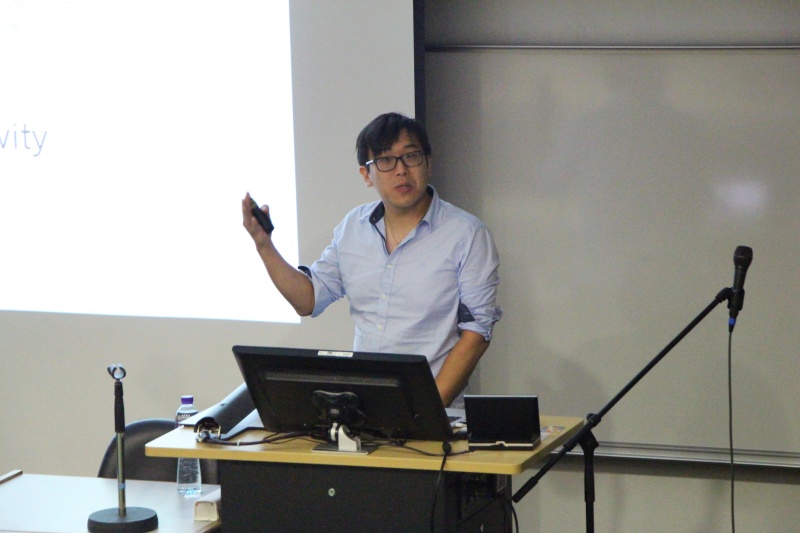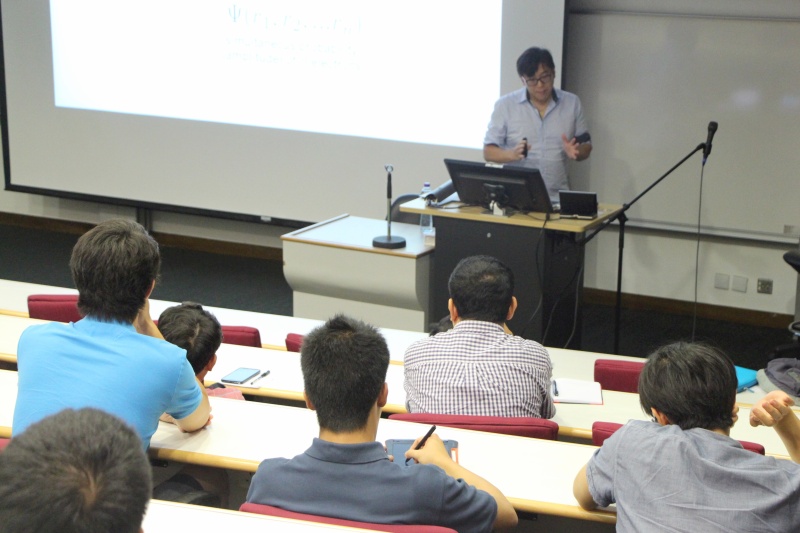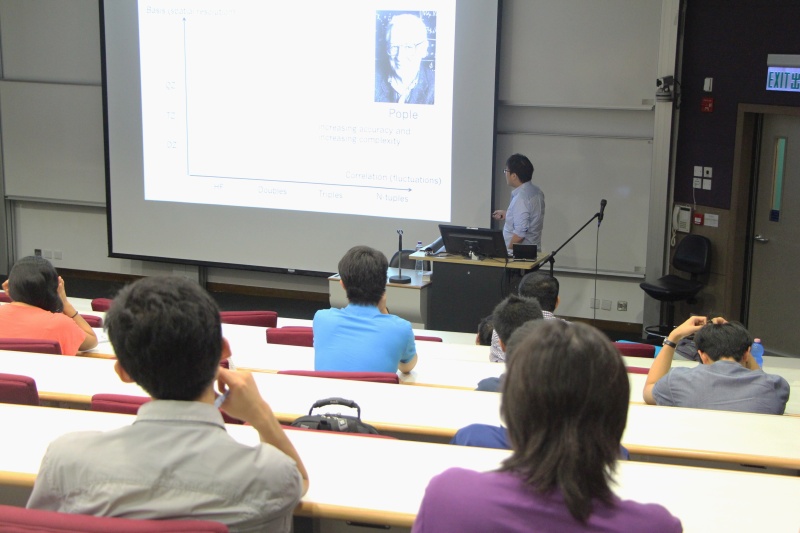Modern Quantum Chemistry
Abstract
The speaker will discuss the latest progress in ab-initio quantum simulations of systems in biology, physics, and chemistry, deriving from advances in the understanding of the structure of quantum states. The theoretical part of the talk will focus on the illusion of complexity in quantum simulation and its recent resolution through the formalism of tensor networks. The phenomenological aspects of this talk will examine applications to bioinorganic chemistry and metalloenzymes; molecular crystal energetics and polymorphism; and progress towards a first-principles description of high temperature superconductivity.
About the speaker
Prof. Garnet Chan received his PhD in Theoretical Chemistry from the University of Cambridge in 2000. He was research fellow at the University of California at Berkeley from 2000 to 2002, and also at the University of Cambridge till 2004. He was faculty at Cornell University from 2004 to 2012. He joined Princeton University in 2012, and is currently A. Barton Hepburn Professor of Chemistry.
Prof. Chan’s research lies at the interface of theoretical chemistry, condensed matter physics, and quantum information theory, and is concerned with the phenomena and numerical methods associated with quantum many-particle systems. Some current systems of interest include metalloenzymes and biological catalysts, transition metal oxides and superconductivity, and organic molecular crystals and light harvesting. He has contributed to a wide range of quantum simulation methods, including density matrix renormalization and tensor network algorithms for real materials, downfolding through canonical transformations, local quantum chemistry methods, quantum embeddings including dynamical mean-field theory and density matrix embedding theory, and new quantum Monte Carlo techniques.
Prof. Chan received numerous awards including the William O. Baker Award from the US National Academy of Sciences, the American Chemical Society Award in Pure Chemistry, the Medal of the International Academy of Quantum Molecular Science, the Camille Dreyfus Teacher-Scholar Award and the National Science Foundation CAREER Award.






